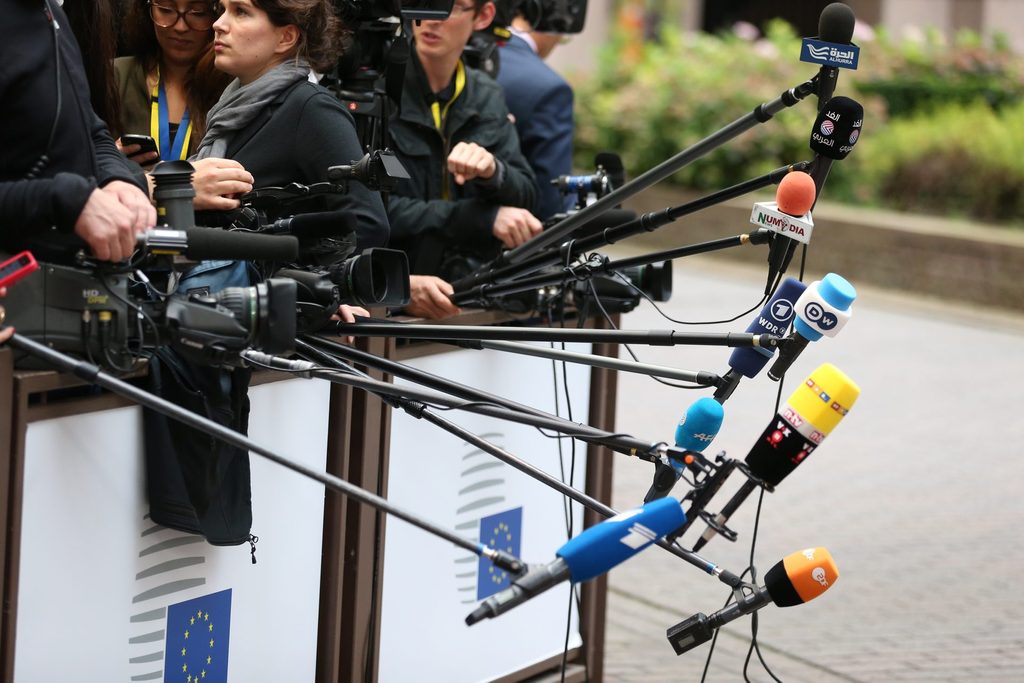Like the gold rush of the mid-19th century, where pioneers and opportunists risked their lives to get to the gold-rich rivers of California, media outlets are in a race to grab a piece of the news pie largely dominated by POLITICO, writes former FT correspondent Javier Espinoza.
It wasn’t always like this. A decade ago, before POLITICO set foot in Brussels, only a relatively small number of media companies paid close attention to the policymaking heart of Europe. The Financial Times was already an established voice, the go-to publication for influential EU officials looking to shape the global narrative around European policymaking. The FT has arguably retained that position even as competition has intensified.
Much respect to POLITICO, however, which spotted an opportunity to serve a wealthy and well-educated community of lawyers, lobbyists, investors, and regulators — known colloquially as the Brussels Bubble. Think what you will and complain as much as you like about its arguably sensationalist headlines, but offerings outside the paywall, such as Playbook, are a must-read for the EU elite. It sets the tone of the day, and no one in their right mind can step into a morning meeting without at least a basic grasp of what’s in the newsletter. Then there’s the content behind the paywall — POLITICO PRO — which serves highly specialised readers in fields like trade, competition, digital markets, and energy.
Competing for a fraction of this market is MLex, founded in 2005. MLex has become a go-to source for competition policy and regulatory news, serving a loyal clientele alongside MergerMarket. Although some argue these outlets serve different niches, they are all competing for one crucial resource: attention—and, more importantly, subscription dollars. My own platform, The Capitol Forum, which I joined last week after more than eight years at the Financial Times, is redoubling its efforts to capture a share of this market.
The battle is fierce, leading to a brutal war for scarce talent. Tono Gil from MLex recently joined MergerMarket, which is re-entering the market after a hiatus. Natalie McNelis, a veteran journalist from MLex, will lead as their Brussels bureau chief. Meanwhile, I am actively searching for talented journalists willing to see beyond what’s available today and help build a strong, credible new voice in European policy reporting. The Brussels Times is also looking to expand its team, having appointed Philip Herd as its new Editor in Chief at the end of last year. Among my peers either they are starting a career and need brand recognition or have achieved it and they are in a place of comfort.
We are not alone. Contexte, long established in the French-speaking market and known for its ability to uncover confidential documents, has recently hired Jack Schickler from Euronews to lead its English-language expansion. Euractiv has also stepped up its game, hiring Matthew Karnitschnig from POLITICO to lead its newsroom. On his first day, Karnitschnig described the goldmine everyone is after: “to become the premier source of quality information and analysis on EU affairs for professionals across an array of sectors, as well as a forum for debate on the burning political questions of our day”. A former competition reporter, Jeremy Fleming is editor in chief of Euronews, which is also seeking to make a dent in the crowded Brussels media landscape.
Victoria Main, at SEC Newgate EU, a long-time observer of the Brussels media landscape, says: “Heads are spinning. I’ve never seen such a vibrant media market in Brussels. I only hope this will lead to thriving competition where readers will enjoy high-quality insights and scoops. Not everyone however will survive.”
Brussels: from bureaucratic backwater to political theatre
The EU’s story, long perceived as a dull landscape of technical procedures, has become decidedly more dramatic. Margrethe Vestager, the EU’s competition czar, became a global name for taking on Big Tech, slapping companies like Apple with a record €14.3 billion state aid fine and hitting Google with multiple antitrust penalties totalling over €8 billion. These are blockbuster battles that draw the world’s attention. Some pass the popcorn as new battles are on the horizon.
On trade, the EU has flexed its muscles in surprising ways—most recently by launching anti-subsidy investigations against Chinese electric vehicle makers, a move that has heightened tensions with Beijing. Meanwhile, images of French and German farmers burning tyres on highways in protest of EU agricultural policies have captured global attention, pointing to a growing backlash against Brussels’ regulatory grip.
And there is promise of an even sexier Brussels story. Donald Trump, now the US President for the second time, has already accused Brussels of protectionism, particularly in its regulatory battles with American tech giants. His return is likely to lead to a belligerent U.S. administration clashing with Brussels at a time when the European Commission is starting its new 5-year term and it is also the start of an expected frenzy in global dealmaking.
The return of Trump to the White House would only accelerate these trends. His administration is likely to bring a more confrontational stance toward the EU, igniting more antitrust battles, trade disputes, and geopolitical tensions. This means more scoops, more demand for deep policy insight, and ultimately, more subscribers willing to pay for exclusive intelligence.
At least, that’s the hope for the media barons looking to unseat the incumbent. Make no mistake, however, not everyone will survive. I am thrilled to be part of these group of pioneers fighting for the Brussels media market.
Javier Espinoza is Europe executive editor at the Capitol Forum, a Washington DC-based outlet looking to expand its reach in Europe. He was EU correspondent with the Financial Times for over 5 years.
The Capitol Forum is sponsoring a one-day conference on Thursday online and in Brussels entitled “The Perfect Storm: a time for truth for Europe? Convened and chaired by economist Cristina Caffarra. You can register here.

